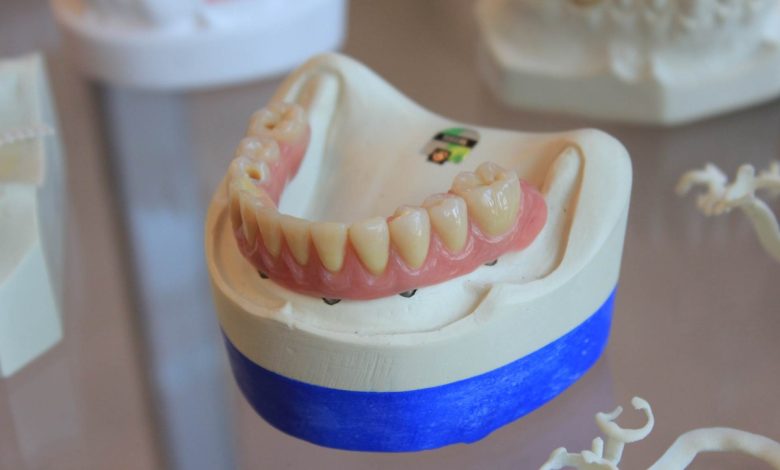Dental Sutures: Easing Pain, Facilitating Speedy Healing

With the increased prevalence of oral health disorders worldwide, the need for dental and oral surgeries has climbed in recent years. Along with surgery, the type of dentall sutures used and the technique are crucial in enhancing the outcomes of the treatments while preventing bleeding and infection.
Dental hygiene not only plays a key role in a person’s physical well-being but also provides added confidence for a person to smile or laugh freely. On the other hand, a person with dental and oral hygiene issues faces several difficulties in their daily life, right from eating to speaking confidently. Due to rising dental disorders, there is a significant increase in dentall surgeries.
Role of dentist Sutures
Sutures are stitches applied on the edges of wounds or surgical incisions. In several dentist surgeries, the application of dental sutures is necessary to allow effective stabilization, prevent gum bleeding, and heal the teeth’ structure. If there is no exposure to oral tissues or bone, dentists often prefer to allow the healing to occur without the suture procedure.
Only some dental surgery procedures require the application of dentist sutures. Dental implants, bone grafts, alveoloplasty, and removal of the wisdom tooth usually require an incision and suture for wound closure to facilitate enhanced recovery.
Dental suturing requires a needle, suture material (natural or synthetic), and a needle holder. Dental sutures protect teeth from infection and improve the healing process.
Types of Dental Sutures
The recovery following dental surgery depends on the dentist’s use of the appropriate suture. The size and type of suture material have to be optimal to speed up recovery and reduce scars. Dental sutures are of two types: – Absorbable Sutures and non-absorbable sutures.
Absorbable Sutures: Also known as dissolvable sutures because they get naturally dissolved and absorbed as the healing progresses. These sutures are typically identified as the most convenient for patients to speed up recovery.
However, individuals that have lower intraoral pH levels should not get these sutures. Some of the common absorbable or resorbable sutures are polyglycolic sutures, gut sutures, and chromic gut sutures.
Non-absorbable Sutures: These sutures are required to be removed by personally visiting the dentist after the passing of some days, as consulted by dentists. Non-absorbable stitches are made from man-made materials such as natural fiber or silk that have been specially designed for dental sutures.
They are usually removed one to two weeks post-surgery. Artificially made sutures made of nylon, polyester, or polypropylene are also used in non-absorbable dental suture procedures.
Key Providers of Dental Sutures
Some of the key providers of dental sutures are HYGITECH, Ltd.; MANI, Inc.; SMI; Dentsply Sirona; A. Titan Instruments; Lux Sutures; Dolphin Suture; DemeTECH Corporation; KATSAN Katgüt Sanayi ve Tic. A.Åž.; B. Braun Melsungen AG; Aigel AB; Surgical Specialities Corporation; Ergon Sutramed Spa; and Shandong Sinorgmed Co., Ltd., among others.
These key players in the dentist suture space are developing innovative specialty sutures that aid in improving dental suturing techniques. In addition, the focus is given to developing solutions that enhance healing and recovery at a quick pace.
For instance, one of the key players in the dentall suture space, Dolphin Suture, in January 2023 announced the addition of DURAFIBR – A Ultra High Molecular Weight Polyethylene Suture (UHMWPE) material, to its offerings. It is quickly becoming the orthopedic surgeon’s preferred material for dental surgical procedures ranging from rotator cuff repair to Achilles tendon repair.
Durafibr, according to the company, has five times more strength than steel dentist sutures on a weight-for-weight basis. It is a soft braided suture, which makes the knotting process very easy and secure. Durafibr’s multi-stranded long-chain polyethylene core makes it truly abrasion-resistant, claims the company.
Why is the Demand for Dental Sutures Growing?
Oral disorders have increased significantly over the years. The number of individuals across the globe who are dealing with some or other oral diseases has gone past 3.5 billion, according to a report published by the World Health Organization in 2022. Factors such as bad eating habits, consumption of unhealthy foods, negligence of oral hygiene, and consumption of alcohol and other substances, among others, are causing the prevalence of oral disorders to increase at a rapid pace.
The worsening state of oral hygiene is becoming a major concern for nations all over the world. Nevertheless, oral diseases can be prevented by improving awareness and expanding access to dental care. There has been a substantial increase in the number of individuals requiring surgery for treating gum and oral diseases, owing to which demand for dentall suture material is rising across the globe.
Moreover, cosmetic dentistry procedures are gaining in popularity among individuals because they improve the appearance of their teeth. Solutions such as dental implants, inlays & onlays, composite bonding, dentist veneers, and teeth whitening are covered in cosmetic dentistry.
The growing trend of cosmetic dentistry treatments is also leading to dental tourism in countries where the cost of treatments is lower. All these factors are expected to support demand growth for dental sutures in the coming years.




